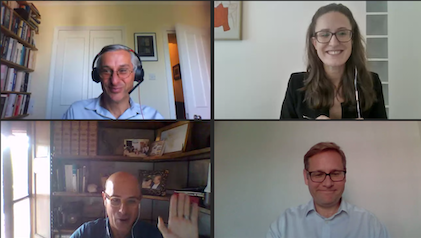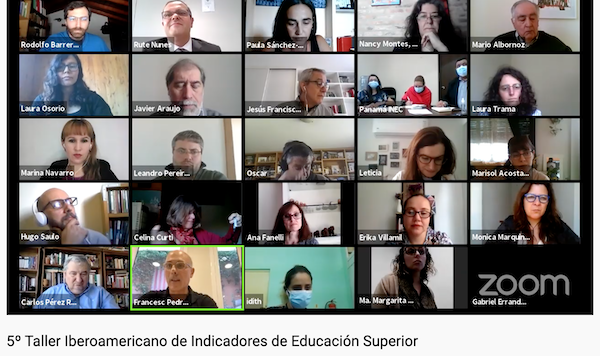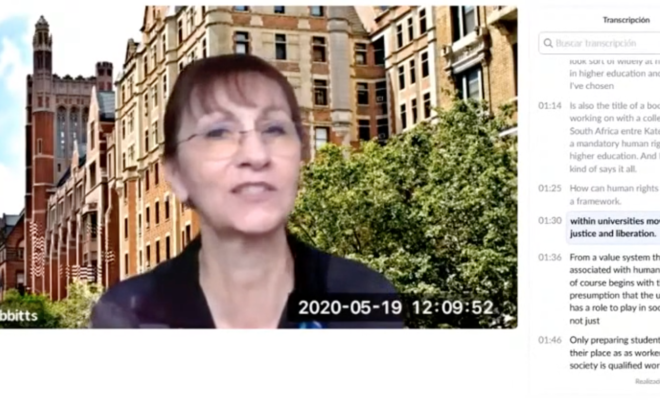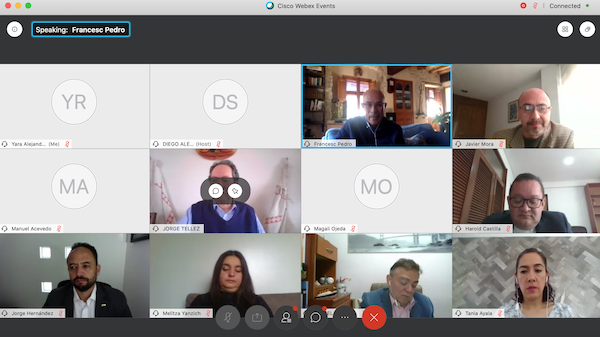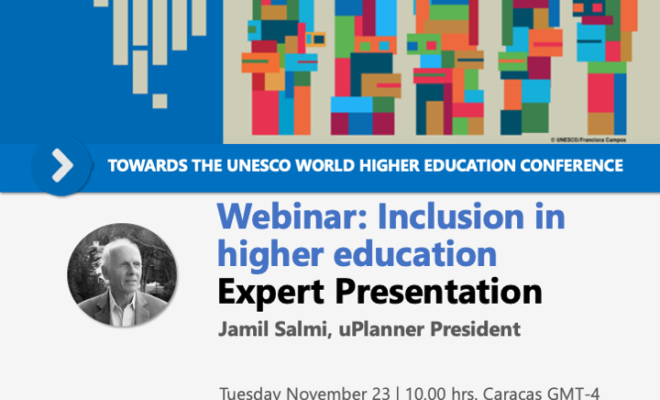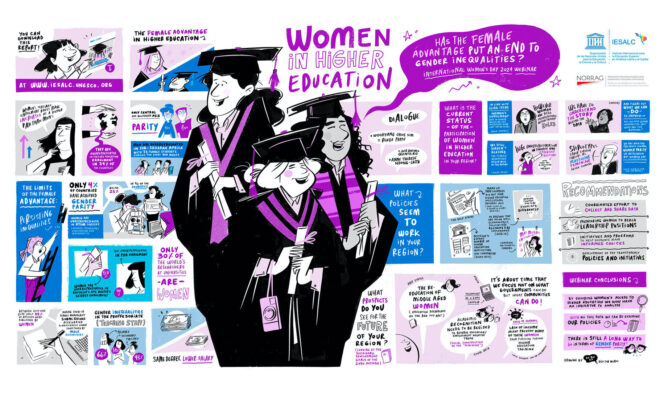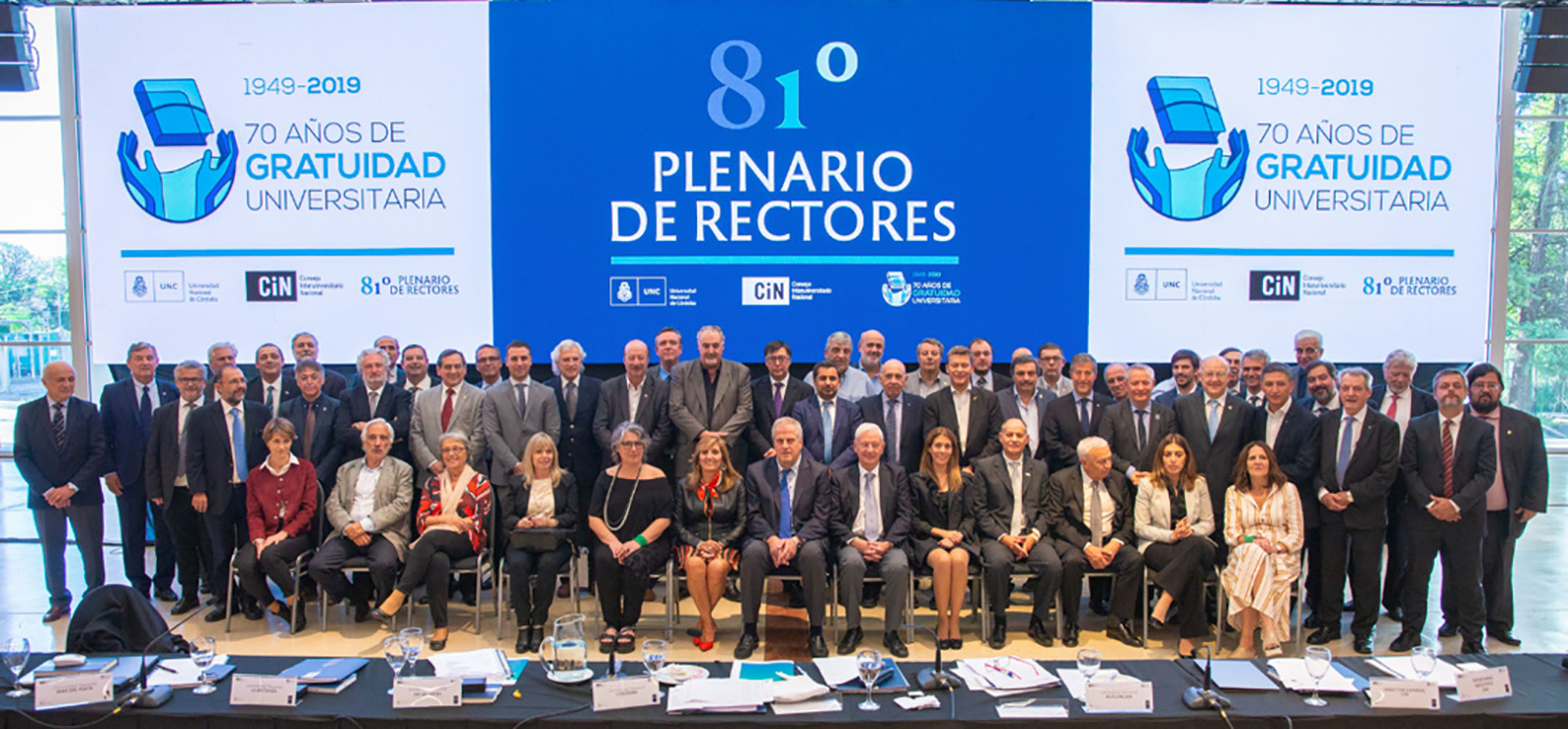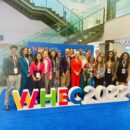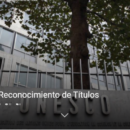The transformation of the world requires a hybrid higher education
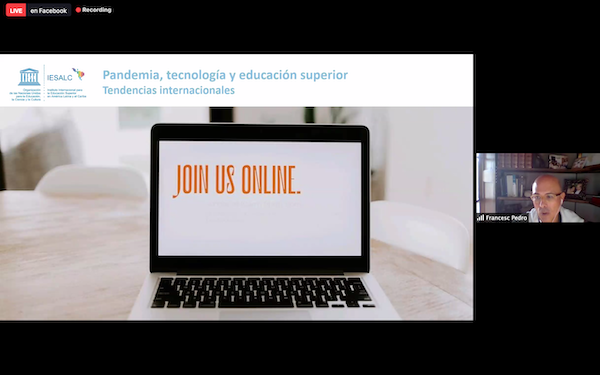
In the most recent webinar organized by the Red Nacional Académica de Tecnología Avanzada, RENATA (National Academic Network of Advanced Technology) entitled: «Unidos Transformamos la nueva visión del mundo, por medio de la educación e investigación» («United We transform the new vision of the world, through education and research») Rafael Rodríguez, executive director of RENATA, gave the words of welcome and highlighted the importance of creating a space to share visions of education and research without gaps, without distances, alongside the SDG lines of action.
For his part, Javier Uceda, professor of electronic technology and former rector of the Universidad Politécnica de Madrid (Polytechnic University of Madrid) and director of the UNESCO Chair in University Management and Policy at the Universidad Politécnica de Madrid, pointed out that income in the telecommunications sector today does not correspond with the needed investments. This has led to the reconversion of the business model and the appearance of new forms of providing services for its survival, among them uber, which radically transformed mobility.
He also highlighted the disruptive innovation in the manufacturing process of the communications and innovation industry. “Is university education immune to these transformations? We are moving towards an improved education supported on technology and digitalization, towards a higher education framed within the knowledge society, which is more student-centered, more personalized and supported by technology, which encourages critical thinking, creativity and long-term training outside the classroom, based on open access to the internet”. The challenge is how to manage the change towards that system.
In his conclusions, Uceda stressed that digitalization is conditioning the structure and operation of universities. The University of the future will be different from the current model; the wave of digitization is growing continuously. The challenge is how to manage the changes. Each university will have to define its strategy in a rapidly changing environment.
Francesc Pedró, Director of the UNESCO International Institute for Higher Education in Latin America and the Caribbean (IESALC), said that 51% of Latin American households have an internet connection and that internet access should be considered a universal right. “The paradox is that we have not taken advantage of the fact of having almost 100% mobile phone use in the region. Perhaps we would have done better by starting from this reality”.
Pedró warned about how more than 50% of universities in Europe have been implementing hybridization since 2015, while in Latin America there were restrictive measures on this, such as in Peru and Colombia, but with the arrival of the pandemic they have been able to adapt to the modality.
He also indicated that there will be losses of students, losses in learning and of interest in educational continuity. “Hybridization has been going on before the pandemic; it needs to be intensified. Go to a university where the field experience is complete on a social, cultural and political scale; let it be a transforming experience”. For the Director of IESALC, hybridization allows for greater flexibility and autonomy, with the capacity for self-regulation. This modality proposes that learning takes place at each student’s rhythm. To achieve an advanced university community, it is necessary to improve the quality of education.
Oscar Domínguez, Executive Director of the Asociación Colombiana de Universidades ASCUN (Colombian Association of Universities) began his participation by highlighting the important work carried out by UNESCO through IESALC, in support of the region’s university community.
He then presented his evaluation of how Colombian universities are organizing themselves and how associativity enhances their renewal. He also highlighted the boost in the quality of education in Colombian universities.
The arrival of the pandemic, as has happened all over the world, has deepened the difficulties met by the university community, accustomed to the face-to-face mode and of not depending on technology for its training, which is why it has been forced to rethink and discuss how to guarantee education to all members of the student body and meet the needs of teachers in terms of tools and platform management.
For ASCUN, the main concern and search for answers is for the students, who have taken on a leading role and priority in the Colombian university community.
See the full webinar on the RENATA Facebook.
RELATED ITEMS
